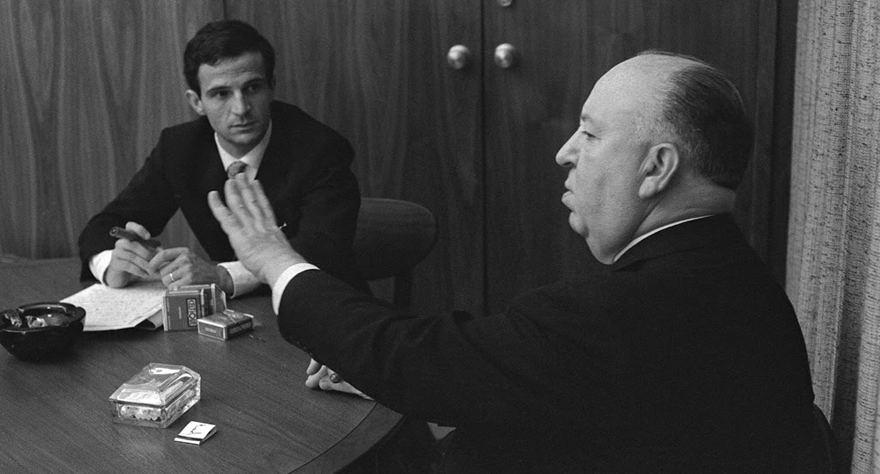
The film isn't nearly as essential as its source material, but it serves as a nice starting point for unfamiliar viewers.

The film isn't nearly as essential as its source material, but it serves as a nice starting point for unfamiliar viewers.
Back in 1966, French critic-turned-filmmaker François Truffaut published the book Cinema According to Hitchcock, which was comprised of conversations he had with Alfred Hitchcock about his career. In a new documentary about these famous conversations, Kent Jones establishes the context for the time period when this took place, citing how Hitchcock wasn’t considered a serious artist by the general public. Even up to the release of Psycho, Hitchcock was known more as a light entertainer than a true master of the craft. At times, Hitchcock even wondered if he was stuck doing the same types of films and not experimenting more; he spent most his time cemented in the studio system of Hollywood, using his name to sell films as well as superstar actors like Grace Kelly, Ingrid Bergman, Cary Grant, and James Stewart.
Truffaut set out to fix the misconception of Hitchcock as entertainer first and artist second. He promised to expose Hitchcock’s cinematic greatness to the world through in-depth analysis of his filmography, and the book was a major hit. Not only did it help shape people’s perception of Hitchcock as a serious filmmaker, it became a bible for film buffs. To this day, the book is still considered to be the holy grail for aspiring filmmakers, or anyone interested in frame-by-frame breakdowns of how the Master of Suspense approached film.
Jones interviews an elite group of modern directors including Martin Scorsese, David Fincher, Wes Anderson, Olivier Assayas, Peter Bogdanovich, and Richard Linklater about how influential Hitchcock is to their career. Listening to these auteurs gush over Hitchcock is inspiring—each respects him for their own reasons, but all seem to agree that it’s his ability to frame every shot perfectly that sets him apart.
Hitchcock provides a ton of captivating thoughts on what makes things work in film. He explains how not showing or saying something can make a scene operate better and brilliantly defends the implausible tendencies of his own films, saying “Logic is dull.” But perhaps the most fascinating insight of the entire conversation was listening to Hitchcock describe the importance of manipulating time. He claims the most powerful feature cinema offers is the ability to control time. Fincher echoes this sentiment by describing directing as simply controlling moments that should occur really fast and making them slow, and making moments that should occur really slow and making them fast. It’s true when you think about it. Compressing or expanding moments of time is indeed what makes cinema such a powerful medium for storytelling. The whole segment is a great example of the documentary supplementing a subject covered in the book.
It’s when Hitchcock/Truffaut devotes a large section on praising Vertigo that the film becomes a little off-balance. Jones details how poorly Vertigo did when it was first released, then contrasts it with how much of an impact it has on today’s filmmakers. This ends up being more of a puff piece for the film and Hitchcock instead of allowing the Master of Suspense to explain things himself. Some of the best parts of the film are listening to Hitchcock defend his decisions and talk about what he thought didn’t work (it’s fascinating to hear Hitchcock suggest how he’d fix a scene in Truffaut’s The 400 Blows). But the film often glosses over these moments in favor of celebrating Hitchcock for reasons which are mostly known at this point. And while it’s completely understandable that Hitch would receive the majority of attention, fans of Truffaut may be let down by how little his work is covered.
Truffaut revised the original book in 1985, updating it with conversations he had regarding the final stages of both their careers. With Hitchcock/Truffaut, Jones creates an unofficial third revision; offering additional perspectives from contemporary filmmakers who assure us that Hitchcock is every bit as relevant today as he was back then. However, the film isn’t nearly as essential as the book it’s based off, though it serves as a starting point for those who haven’t read the book and a modest companion piece for those who have.